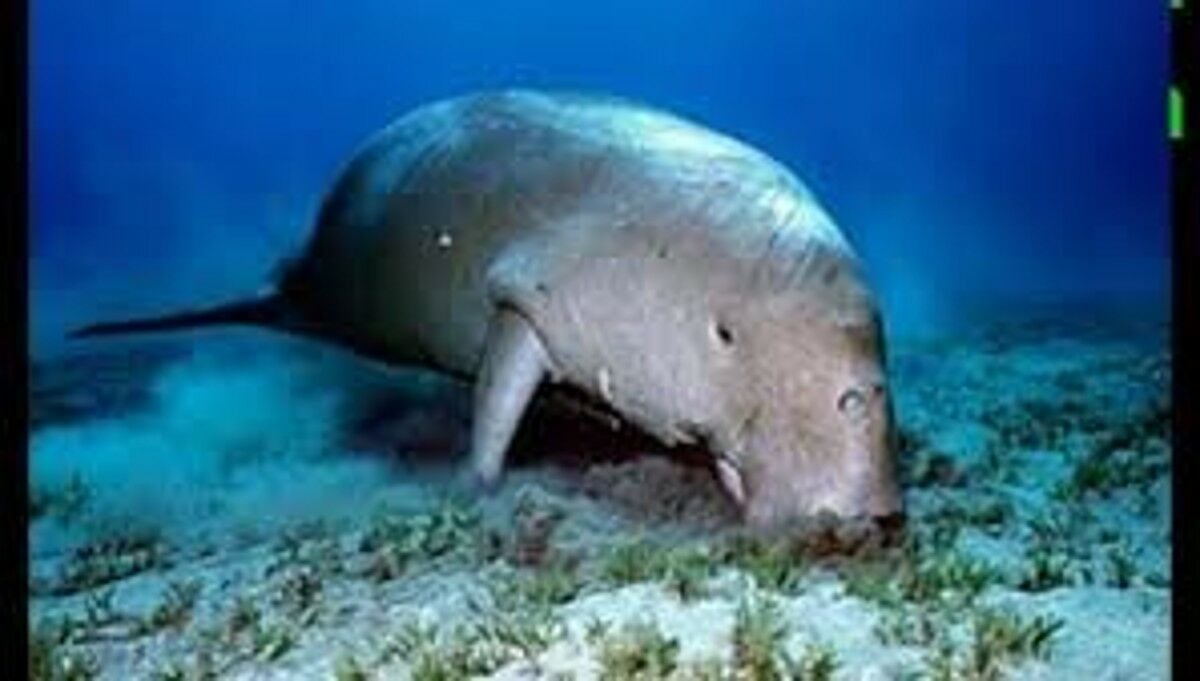Dugong numbers in Andaman Sea may drop 70% in four years

Dugong populations in the Andaman Sea face a potential 70% decline within the next four years, primarily due to a shrinking supply of seagrass, their main food source. This alarming prediction was made by a marine biologist, emphasising the urgent need for conservation efforts to save this vulnerable marine mammal.
Thon Thamrongnawasawat highlighted the crisis in seagrass reserves, stressing the need for increased action to safeguard the dugongs, which are becoming increasingly rare. Collaborative efforts among various agencies aim to restore these vital seagrass habitats, which have suffered significantly from the impacts of climate change.
The marine biologist, also the deputy dean of the Faculty of Fisheries at Kasetsart University, revealed that 72 dugongs died between 2023 and 2024, out of a total population of 250 recorded in 2022 in the Andaman Sea. The dugong population is estimated at around 120, but this number might plummet to 70 over the next four years if no significant protective measures are implemented.
“We will have less and less dugong populations if we don’t take more aggressive action to protect their food source.”
In an innovative attempt to address the crisis, the Department of Marine and Coastal Resources (DMCR) initiated a pilot project at Rawai Beach in Phuket, providing alternative food sources for the dugongs.
The project includes feeding the marine creatures with Chinese cabbage, along with other vegetables such as morning glory, bok choy, kale, and cabbage, across four 1-square-metre sites. Despite the setup, only one dugong has approached these feeding sites, though it did not consume any of the offerings.
In addition to exploring alternative food options, the DMCR employs unmanned aerial vehicles to gather data on dugong activity and feeding habits. Thon’s team is also collaborating with researchers in Malaysia, following reports of dugong sightings in Penang, suggesting that some individuals may have migrated in search of food.
Jatuporn Buruspat, permanent secretary at the Ministry of Natural Resources and Environment, expressed concern over the dwindling dugong numbers and stressed the urgency of enhancing seagrass fertility in the region. The Ministry of Agriculture and Cooperatives is partnering with the DMCR to gather seagrass seeds for further plantation efforts.
Jatuporn dismissed a proposal to relocate the dugongs from the Andaman Sea to the Gulf of Thailand, where seagrass is more plentiful. He advocated for more studies before making such a decision, considering the species’ sensitivity to new environments.
The situation calls for immediate and concerted efforts to protect the dugongs and their habitat, ensuring their survival for future generations, reported Bangkok Post.
Frequently Asked Questions
Here are some common questions asked about this news.
Why is the decline in seagrass so critical for dugong survival?
Seagrass is the primary food source for dugongs, and its decline directly threatens their sustenance and survival.
How could climate change exacerbate the dugong crisis in Thailand?
Climate change impacts seagrass growth and distribution, further reducing available food for dugongs and endangering their populations.
What if the alternative feeding project for dugongs fails to attract them?
Failure may necessitate exploring other innovative conservation strategies or intensifying efforts to restore natural seagrass habitats.
How might dugong migration affect conservation strategies in Thailand?
Migration could complicate tracking and protection efforts, requiring international collaboration and adaptive conservation measures.
What are the potential risks of relocating dugongs to different regions?
Relocation could expose dugongs to unsuitable conditions and new threats, necessitating thorough ecological studies beforehand.
Latest Thailand News
Follow The Thaiger on Google News:


























